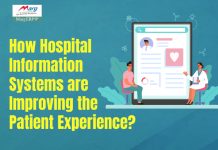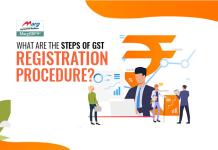Introduction
Since assuming office in 2014, Prime Minister Narendra Modi and his government have introduced numerous schemes aimed at transforming India’s socio-economic landscape. These initiatives reflect the government’s commitment to inclusive growth, digital empowerment, and sustainable development. In this blog, we will explore some of the key schemes launched by the Modi government, highlighting their objectives and impact.
Pradhan Mantri Jan Dhan Yojana (PMJDY):
Launched in 2014, PMJDY is a flagship financial inclusion scheme that aims to provide banking services to every household in the country. Under this scheme, individuals can open zero-balance bank accounts, avail access to insurance and pension schemes, and receive direct benefits transfers. With over 43 crore accounts opened so far, PMJDY has played a crucial role in empowering the underprivileged and promoting financial inclusion.
Swachh Bharat Abhiyan:
The Swachh Bharat Abhiyan, or Clean India Mission, was launched in 2014 with the goal of making India open defecation-free and achieving universal sanitation coverage. This ambitious campaign has created awareness about the importance of cleanliness and proper sanitation practices. It has led to the construction of millions of toilets, improved waste management systems, and a significant reduction in open defecation, thus improving public health and hygiene.
Pradhan Mantri Ujjwala Yojana (PMUY):
Launched in 2016, PMUY aims to provide free LPG connections to women from below-poverty-line households. By replacing traditional cooking fuels like wood and coal with clean LPG, this scheme promotes environmental sustainability and improves the health of women and children, who are often exposed to harmful smoke from traditional cooking methods. PMUY has already benefited millions of households, empowering women and reducing indoor air pollution.
Pradhan Mantri Awas Yojana (PMAY):
PMAY, launched in 2015, envisions “Housing for All” by 2022. The scheme provides affordable housing options and financial assistance to eligible beneficiaries in urban and rural areas. By addressing the housing needs of the economically weaker sections and low-income groups, PMAY ensures dignity, security, and a better quality of life for millions of people. It has accelerated the pace of affordable housing construction across the country.
Digital India:
Digital India, launched in 2015, is a comprehensive initiative to digitally empower citizens and transform India into a digitally empowered society. The program focuses on improving digital infrastructure, promoting digital literacy, and delivering government services electronically. It has led to increased internet penetration, facilitated access to various services online, and enhanced transparency in governance, enabling citizens to actively participate in the digital economy.
Conclusion
The schemes launched by the Modi government demonstrate its commitment to social welfare, economic development, and sustainable progress. From financial inclusion to sanitation, clean energy, affordable housing, and digital empowerment, these initiatives have had a significant impact on the lives of millions of Indians. By addressing key challenges and promoting inclusive growth, the government is paving the way for a more prosperous and empowered India. As these schemes continue to evolve and reach even more beneficiaries, the transformative vision of the Modi government is gradually becoming a reality, ensuring a brighter future for the nation.
Read more useful content:
Frequently Asked Questions (FAQs)
Q. What is the Pradhan Mantri Jan Dhan Yojana (PMJDY)?
The Pradhan Mantri Jan Dhan Yojana (PMJDY) is a financial inclusion scheme launched by the Modi government in 2014. It aims to provide banking services to every household in the country, particularly the underprivileged. The scheme offers zero-balance bank accounts, access to insurance and pension schemes, and direct benefit transfers.
Q. What is the Swachh Bharat Abhiyan?
The Swachh Bharat Abhiyan, or Clean India Mission, is an initiative launched in 2014 with the objective of achieving universal sanitation coverage and eliminating open defecation in India. The campaign focuses on promoting cleanliness, constructing toilets, improving waste management systems, and creating awareness about proper sanitation practices.
Q. What is the Pradhan Mantri Ujjwala Yojana (PMUY)?
The Pradhan Mantri Ujjwala Yojana (PMUY) is a scheme introduced in 2016 to provide free LPG (liquefied petroleum gas) connections to women from below-poverty-line households. The aim is to replace traditional cooking fuels like wood and coal with clean LPG, thereby improving the health of women and children and reducing indoor air pollution.
Q. What is the Pradhan Mantri Awas Yojana (PMAY)?
The Pradhan Mantri Awas Yojana (PMAY) is a housing scheme launched in 2015 with the vision of providing affordable housing to all by 2022. The scheme offers financial assistance and subsidies to eligible beneficiaries in urban and rural areas, addressing the housing needs of the economically weaker sections and low-income groups.
Q. What is Digital India?
Digital India is an initiative launched in 2015 with the goal of digitally empowering citizens and transforming India into a digitally empowered society. The program focuses on improving digital infrastructure, promoting digital literacy, and delivering government services electronically. It aims to increase internet penetration, facilitate online access to services, and enhance transparency in governance.
Q. How do these schemes benefit the common people?
These schemes benefit the common people by addressing various socio-economic challenges and improving their quality of life. They provide access to financial services, promote hygiene and sanitation, offer clean cooking solutions, ensure affordable housing options, and facilitate digital empowerment. By uplifting the underprivileged and empowering individuals, these schemes contribute to inclusive growth and development.
Q. How can individuals avail the benefits of these schemes?
The government has set up a streamlined process to avail the benefits of these schemes. Eligible individuals can visit the respective government departments or agencies responsible for implementing the schemes. They can also access information and apply online through dedicated portals or visit the nearest Common Service Centers (CSCs) for assistance.
Q. Are these schemes only for specific regions or communities?
No, these schemes are designed to benefit people across the country regardless of region, caste, or community. They aim to uplift the underprivileged and provide equal opportunities to all. The eligibility criteria for each scheme are defined to target specific segments of the population based on socio-economic parameters rather than regional or communal factors.
Q. What has been the impact of these schemes so far?
These schemes have had a significant impact on the lives of millions of people. They have improved financial inclusion, reduced open defecation, enhanced access to clean cooking solutions, accelerated affordable housing construction, and promoted digital literacy and empowerment. The impact can be seen in improved health outcomes, increased economic opportunities, and a more inclusive and empowered society.




















